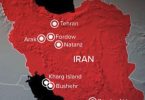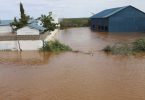The Caribbean Tourism Organization (CTO), the region’s tourism development agency, joins the global community in celebrating World Tourism Day 2020 under the theme, “Tourism and Rural Development”.
This year’s international day of observation comes at a time when the global tourism industry is facing a crisis of historic proportion due to the COVID-19 pandemic. Indeed, the true impact of the pandemic may not be known for some time. However, the immediate impact on our region is very evident. Having begun 2020 on course for a new record in tourist arrivals, the closure of airports in March was followed by virtually no travel to the Caribbean in April and May. The result was a 57 per cent decline in arrivals between January and June. This translates into an estimated 50 per cent to 60 per cent fall in visitor spend, which can be seen directly in the form of closed tourism businesses, and across the economic spectrum in the form of significantly reduced revenues in both the public and private sectors. In addition, the International Labor Organization (ILO) estimates that almost half a million Caribbean tourism workers face the prospect of job losses, reductions in working hours, and loss of incomes as a result of the pandemic.
Several Caribbean countries are considered among the most vulnerable by the World Tourism Organization (UNWTO) as international tourism revenues account for the majority of total exports in these states. It also goes without saying that women, youth, and workers in the informal economy have been, and will be, among the hardest hit.
The CTO has recognized that the COVID-19 pandemic forces us to rethink our approach to tourism and to forge closer alignment of tourism and health functions. We also recognized that we need to ensure that on the restart of the sector, the benefits of tourism activity accrue as quickly as possible to all facets of our societies. This means that while the traditional players in tourism restart, we also need to help those businesses which are often away from the coast and beaches, in our rural areas.
To this end, the organization has forged ahead in its collaboration with the Compete Caribbean Partnership Facility (CCPF) which will be funding community-based tourism projects in some rural areas in Caribbean countries. The lessons learnt can be used as a blueprint to encourage similar projects across the region and be a catalyst for income generation and development in our rural communities.
Some of the characteristics of rural communities such as population demographics, lower income levels and relatively limited access to technology and infrastructure lead to an increased vulnerability in such areas, to the impacts of crises like the COVID-19 pandemic. Tourism can work hand in hand with other economic sectors in the Caribbean such as agriculture, transportation and culture to empower rural communities.
Bringing people together in such an environment of solidarity and trust, advances the cooperation and collaboration needed to help us move beyond the pandemic. By providing a lifeline to the vulnerable in our societies, we reduce the tug on social services and further enhance the capacity of Caribbean people to play a leading role in their own development. Since the greatest resource in the Caribbean is our people, any investment will result in benefits for generations to come.
While we continue to work diligently on ensuring a safe and healthy environment for our visitors and locals alike, let us contemplate the opportunity that this pandemic affords us to tweak our tourism sector, and indeed all other sectors of our economies, to reach a level of sustainability that is resistant to crisis.
We urge our Caribbean people to join the world tourism community in rebuilding this sector and ensuring that starting now, the benefits of tourism consistently spread beyond the traditional coastal and urban bailiwick to areas of our countries often overlooked, but which can be positioned to sustainably diversify the already rich treasures awaiting visitors to our shores.























